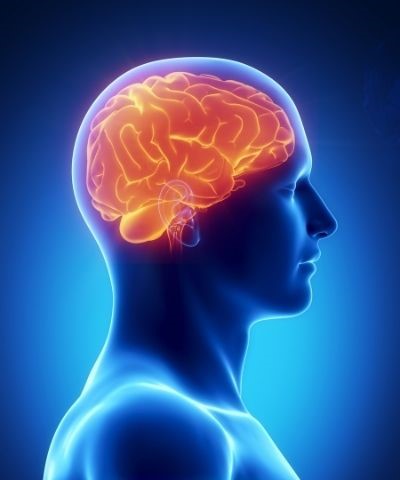MindView Newsletter June 2021
Improving the Quality of Life for Veterans with Psychosis
Download
In This Issue
- MIRECC Scientific Symposium on Motivation
- CBTp - New Options for Veterans with Psychosis
- Cognitive Training in Serious Mental Illness
- MIRECC Presentations
- MIRECC Publications
MIRECC Scientific Symposium on Motivation
Working Toward Improved Functioning for Veterans with Schizophrenia
By Kara Fortier

Diminished motivation is one of the most disabling symptoms for people with schizophrenia. It’s easy to take for granted the drive to go out into the world, try new things, make friends, or find and keep a job. The brain’s reward system plays a large role in motivation. When someone anticipates that they will be rewarded by a given activity, they will feel motivated to do it. But when people with schizophrenia engage in an activity that might be rewarding to others, they don’t predict the same level of pleasure. Because they don’t anticipate rewards like others do, they don’t feel motivated to engage in beneficial activities, impacting their ability to live a full life and function in community.
Amotivation is a negative symptom of schizophrenia, meaning the person is lacking something that is ordinarily present in other people. Positive symptoms, like hallucinations and delusions, are perceptions or behaviors that are present in people with schizophrenia and not in other people. Most antipsychotic medications are less effective for negative symptoms than positive. This is problematic because people with schizophrenia have more functional consequences related to negative symptoms than positive ones. Lack of motivation is one of the most disabling of them all.
For this reason, motivation has become a focus of study as researchers try to discover new ways to treat symptoms of schizophrenia. The mission of the VA Desert Pacific MIRECC is to improve functioning among Veterans with psychosis, and motivation touches every aspect of the Center’s research. Therefore, we held a MIRECC Scientific Symposium on Motivation on January 13-14, 2021. The purpose of the symposium was to share our work in order to stimulate collaborations across units, sites, and investigators.
Day one of the symposium focused on basic and translational approaches to motivation and research that seeks to understand the brain mechanisms involved. Presenters shared animal and human studies that looked at neural circuits and systems that underlie motivation-type behavior. In her keynote presentation, Dr. Deanna Barch, of Washington University in Saint Louis spoke about the mechanisms of motivational impairment in psychosis and how we can learn more about these with functional neuroimaging techniques and laboratory studies of behavior.
Drs. Jared Young and Sam Barnes, of the Neuropsychopharmacology Unit, spoke about their work with animal models - studying how much effort one is willing to put out in order to get a reward. Translational studies using similar methods in humans found that people with schizophrenia aren't willing to work as hard for a given level of reward because they don’t anticipate the same level of pleasure from the reward as those without schizophrenia do.
The second day focused on clinical and community approaches to motivation. Presentations by Drs. Junghee Lee and Jonathan Wynn examined social motivation as well as the role of motivation in community reintegration of homeless veterans.
One of the most difficult problems is that people with schizophrenia struggle to find motivation to seek and stay in treatment. Dr. Noosha Niv, Director of the Education and Dissemination Unit, spoke about Motivational Interviewing strategies to increase motivation in treatment. The goal of this strategy is to help people with schizophrenia identify their own reasons and rewards for taking a given action, such as setting up an appointment with a therapist. Dr. Felice Reddy described her work in applying Motivational Interviewing to the treatment of negative symptoms for schizophrenia.
Through our efforts at the symposium to share research and treatment methods, we identified a disconnect between the basic science and the applied, clinical work. Our current laboratory measures don't reliably predict motivation-oriented behaviors like who's going to stay in treatment or get a job. Our next step will be to write a paper to identify this disconnect by reviewing what's been done in the basic science of motivation, pointing out the work that is needed to link the science and the applied work together, and then share our opinion about what that effort might look like.
Day 1 - Basic & Translational Approaches to Motivation
KEYNOTE: Mechanisms of motivational impairment in psychosis - Deanna Barch PhD, Departments of Psychological & Brain Sciences, Psychiatry, and Radiology, Washington University
Translational studies on reward responsivity and the willingness to exert effort - Jared Young PhD, Co-Director, VISN 22 MIRECC Neuropsychopharmacology Unit
Circuits underlying motivation and reward processing - Samuel Barnes, PhD, Investigator, VISN 22 MIRECC Neuropsychopharmacology Unit
Day 2 - Clinical & Community Approaches to Motivation
Role of motivation in community reintegration in homeless veterans with and without psychosis – Jonathan Wynn, PhD, Investigator, VISN 22 MIRECC Treatment Unit
Toward a neural basis for social motivation in psychotic disorders – Junghee Lee, PhD, Department of Psychiatry and Behavioral Neurobiology, University of Alabama at Birmingham
Measuring motivation in treatment - Noosha Niv, PhD, Director, VISN 22 MIRECC Education and Dissemination Unit
An integrated MI and CBT intervention for negative symptoms in schizophrenia– Felice Reddy, PhD, Assistant Research Psychologist, Department of Psychiatry and Biobehavioral Sciences, University of California, Los Angeles
Return to Top
CBTp: New Options for Veterans with Psychosis
By Kara Fortier
 Medication is a mainstay for people with psychotic disorders. However, many people continue to have symptoms even if they’re on an adequate dose of antipsychotic medications and appear to be taking them regularly. This prompted researchers in the U.S. and U.K. to think about whether it might be useful to address these symptoms directly using Cognitive Behavioral Therapy.
Medication is a mainstay for people with psychotic disorders. However, many people continue to have symptoms even if they’re on an adequate dose of antipsychotic medications and appear to be taking them regularly. This prompted researchers in the U.S. and U.K. to think about whether it might be useful to address these symptoms directly using Cognitive Behavioral Therapy.
Cognitive Behavioral Therapy for psychosis (CBTp) was originally pioneered by Dr. Aaron T. Beck in the early 1950s, but it became more widely developed in the U.K. in the 1980s and 90s. One of the most prominent investigators exploring CBT for psychosis is Dr. Eric Grandholm at the Veteran’s Administration in San Diego, California.
The approach is based on the gentle challenging of problematic beliefs. It has shown improvements in symptoms, including hallucinations, negative symptoms, thought disturbances, and delusions. CBTp can also lead to improved functioning in people with psychotic disorders. The intervention has been widely studied throughout the world with many positive outcome trials, but it also has critics. One challenge in evaluating the strength of the intervention is that it’s been tested in varying situations, making it difficult to compare data across studies.
For instance:
- Some studies compared inpatient versus outpatient interventions.
- Some studies were only four weeks long while some lasted a year.
- Some studies included a variety of psychotic diagnoses while others focused solely on schizophrenia.
- Some studies emphasized symptom outcomes while others focused on functioning.
Nonetheless, CBTp is a clinically validated intervention for psychosis with research indicating a 50-65% reduction in symptoms when used in combination with medication. There are now several published manuals on how to conduct CBTp, and interest has been increasing among VA clinicians in obtaining formal training.
In recognition of this interest, VISN 22 MIRECC is leading two initiatives:
- We are mounting a pilot training program for VA clinicians in CBTp in collaboration with the VISN 2 MIRECC. These two-day workshops will begin in July 2021.
- We will also be offering CBTp through the National TelePsychosis Program led by the VISN 22 MIRECC and funded by the VA National Telemental Health Center. Seasoned VA providers will be offering treatment remotely throughout the country to facilities that don’t have sufficient providers trained on staff.
Contact Noosha Niv, PhD (noosha.niv@va.gov) if you would like to be informed of future training opportunities.
Return to Top
Cognitive Training in Serious Mental Illness
By Noosha Niv, PhD, Yash Joshi, MD, PhD, Gregory Light, Ph.D. Have you ever had the experience of forgetting or misplacing items, having difficulty completing tasks, or not knowing how to start a task? These are examples of cognitive problems. These experiences happen to everyone, but for people living with serious mental illnesses (SMI) such as schizophrenia, schizoaffective disorder, and bipolar disorder, problems with thinking, learning, and memory can be worse. Even with comprehensive treatment, many Veterans with SMI have cognitive symptoms that do not remit, resulting in an overall reduced quality of life and difficulties in managing school, acquiring new skills, keeping jobs, and maintaining social connection.
Have you ever had the experience of forgetting or misplacing items, having difficulty completing tasks, or not knowing how to start a task? These are examples of cognitive problems. These experiences happen to everyone, but for people living with serious mental illnesses (SMI) such as schizophrenia, schizoaffective disorder, and bipolar disorder, problems with thinking, learning, and memory can be worse. Even with comprehensive treatment, many Veterans with SMI have cognitive symptoms that do not remit, resulting in an overall reduced quality of life and difficulties in managing school, acquiring new skills, keeping jobs, and maintaining social connection.
The terms "cognitive training," "cognitive remediation," and "cognitive rehabilitation" are often used to describe programs that aim to reduce problems with cognition. A growing body of research shows that cognitive training can be effective for improving concentration, memory, and problem-solving. Cognitive training may also reduce psychiatric symptoms (e.g., hallucinations) and improve social, work, and school functioning.
Just as there are many different types of physical exercise, there are many different cognitive training approaches. Investigators in the VISN 22 MIRECC have conducted research in an effort to understand which type of approach would be most effective for individuals with SMI. They are now turning their attention to who would most benefit from cognitive training. Dr. Gregory Light found that a computerized, targeted cognitive training program significantly reduced hallucinations, improved verbal learning, attention, and memory, and increased participation in psychosocial groups and activities. Unfortunately, nearly one out of three patients did not experience benefits from the treatment. His research recently showed that laboratory tests of brain function measured prior to treatment were strong predictors of who would and who would not benefit. His current research continues to examine this question. He is also testing if adding memantine, an FDA approved medication for the treatment of cognitive dysfunction in Alzheimer’s Disease, would improve response to cognitive training.
Cognitive training is currently not available at VA and is difficult to find in clinical settings. If you are interested in trying it with the help of a professional, you might be able to find a research study to participate in. These studies typically happen at VA facilities or research universities.
Many commercial cognitive training programs are also available for those who want to do it on their own. It is often difficult to tell if a program is actually made to treat cognition instead of simply being a computer game. Many programs have misleading advertisements or exaggerate their results. When looking for a commercial program to purchase, look for programs that are being studied at VA facilities and research universities and have research results published in peer-reviewed, scientific journals. Search for programs that have been specifically studied for individuals with SMI rather than for the general population or other conditions.
To learn more about the types of cognitive training and the conditions necessary to benefit from it, download our education handout at https://www.mirecc.va.gov/visn22/cognitive.asp.
Return to Top
Presentations
 Dr. Noosha Niv conducted six workshops on Motivational Interviewing (MI) for clinicians at the West Los Angeles VA and researchers at UCLA. If you are interested in MI training, please contact Dr. Niv at noosha.niv@va.gov
Dr. Noosha Niv conducted six workshops on Motivational Interviewing (MI) for clinicians at the West Los Angeles VA and researchers at UCLA. If you are interested in MI training, please contact Dr. Niv at noosha.niv@va.gov
Dr. Lisa Eyler presented Advanced Brain Age and its Clinical Correlates in Bipolar Disorder: Evidence from Global and Local Imaging Data at the American College of Neuropsychopharmacology Annual Meeting, December 2020.
Dr. Stephen Marder presented Practical Clinical Update: Health Issues for People on Antipsychotics at Semel Institute Grand Rounds, Los Angeles, September 2020.
In January 2021, we held the VA Desert-Pacific MIRECC Scientific Symposium on Motivation. The mission of the symposium was improving functioning among Veterans with psychosis by clarifying concepts and definitions and sharing work in order to stimulate collaborations across units, sites, and investigators. To learn more about this event, refer to MIRECC Scientific Symposium on Motivation.
Return to Top
Publications
 Almeida, O.P., Jimenez, E., Rej, S., Eyler, L.T., Sajatovic, M., Dols, A. (In Press) COVID-19 and older adults with bipolar disorder: Problems and solutions. Bipolar Disorders.
Almeida, O.P., Jimenez, E., Rej, S., Eyler, L.T., Sajatovic, M., Dols, A. (In Press) COVID-19 and older adults with bipolar disorder: Problems and solutions. Bipolar Disorders.
Bigdeli, T. B., Genovese, G., Georgakopoulos, P., Meyers, J. L., Peterson, R. E., … Pato, C. N. (2020). Contributions of common genetic variants to risk of schizophrenia among individuals of African and Latino ancestry. Molecular Psychiatry, 25, 2455–2467.
Catalano, L.T., Green, M.F., Wynn, J.K., & Lee, J. (2020). People with schizophrenia do not show the normal benefits of social versus nonsocial attentional cues. Neuropsychology, 34(6), 620-628.
Green, M. F., Wynn, J. K., Gabrielian, S., Hellemann, G., Horan, W. P., … Sugar, C. A. (2020). Motivational and cognitive factors linked to community integration in homeless veterans: study 1 - individuals with psychotic disorders. Psychological Medicine, 1-9.
Greenwood, T.A., Swerdlow, N.R., Calkins, M.E., Freedman, R., Green, M.F., … Duncan, E. (2020). Heritability of acoustic startle latency in schizophrenia from the Consortium on the Genetics of Schizophrenia (COGS) Study. Schizophrenia Research, 224, 33-39.
Jahshan, C., Wynn, J.K., Roach, B.J., Mathalon, D.H., Green, M.F. (2020). Effects of transcranial direct current stimulation on visual neuroplasticity in schizophrenia. Clinical EEG and Neuroscience, 51, 382-389.
Kantrowitz, J. T., Grinband, J., Goff, D. C., Lahti, A. C., Marder, S. R., . . . Lieberman, J. A. (2020). Proof of mechanism and target engagement of glutamatergic drugs for the treatment of schizophrenia: RCTs of pomaglumetad and TS-134 on ketamine-induced psychotic symptoms and pharmacoBOLD in healthy volunteers. Neuropsychopharmacology, 45, 1842-1850.
Kern, R.S., Reddy, L.F., Cohen, A.N., Young, A.S., Green, M.F. (2020). Effects of aerobic exercise on cognition, symptoms, and social functioning in middle-aged and older veterans with schizophrenia. Psychiatry Research, 291, 113258.
Kraus, M.S., Gold, J.M., Barch, D.M., Walker, T.M., Chun, C.A., … Keefe, R.S.E. (2020) The characteristics of cognitive neuroscience tests in a schizophrenia cognition clinical trial: Psychometric properties and correlations with standard measures. Schizophrenia Research: Cognition, 19, 100161.
Lee, E.E., Ramsey, M., Malhotra, A., Ancoli-Israel, S., Kaufmann, C., … Eyler, L.T. (2021). Links between objective sleep measures and inflammation in adults with bipolar disorder: Comparison of night-to-night variability measures. Journal of Psychiatric Research, 134, 8-14.
Maj, M., van Os, J., De Hert, M., Gaebel, W., Galderisi, S., … Ventura, J. (2021). The clinical characterization of the patient with primary psychosis aimed at personalization of management. World Psychiatry, 20, 4-33.
Marder, S.R., Eriksson, H., Zhao, Y., & Hobart, M. (2020). Post hoc analysis of a randomised, placebo-controlled, active-reference 6-week study of brexpiprazole in acute schizophrenia. Acta Neuropsychiatrica, 32(3), 153-158.
McWhinney, S.R., Abé, C., Alda, M., Benedetti, F., Bøen, E., … Hajek, T., for the ENIGMA Bipolar Disorders Working Group (In Press). Association between body mass index and subcortical brain volumes in bipolar disorders– ENIGMA study in 2,735 individuals. Molecular Psychiatry.
Nahum, M., Lee, H., Fisher, M., Green, M.F., Hooker, C.I., … Vinogradov, S. (2021). Online social cognition training in schizophrenia: A double-blind, randomized, controlled multi-site clinical trial. Schizophrenia Bulletin, 47, 108-117.
Potkin, S.G., Kane, J.M., Correll, C.U., Lindenmayer, J.P., Agid, O., … Howes, O.D. (2020). The neurobiology of treatment-resistant schizophrenia: paths to antipsychotic resistance and a roadmap for future research. NPJ Schizophrenia, (6), 1.
Saks, E. R., & Marder, S. R. (2021). Stigma-Personal Views. Schizophrenia Bulletin, 47(1), 1-2.
Schoretsanitis, G., Kane, J. M., Correll, C. U., Marder, S. R., Citrome, L., … American Society of Clinical Psychopharmacology (2020). Blood Levels to Optimize Antipsychotic Treatment in Clinical Practice: A Joint Consensus Statement of the American Society of Clinical Psychopharmacology and the Therapeutic Drug Monitoring Task Force of the Arbeitsgemeinschaft fur Neuropsychopharmakologie und Pharmakopsychiatrie. The Journal of Clinical Psychiatry, 81(3), 19cs13169.
Vadodaria, K.C., Mendes, A.P.D., Mei, A., Racha, V., Erikson, G., … Gage, F.H. (In Press). Altered neuronal support and inflammatory response in bipolar disorder patient-derived astrocytes. Stem Cell Reports.
Wynn, J. K., Gabrielian, S., Hellemann, G., Horan, W. P., Kern, R. S., … Green, M. F. (2020). Motivational and cognitive factors linked to community integration in homeless veterans: Study 2 - clinically diverse sample. Psychological Medicine, 1-8.
Return to Top



















